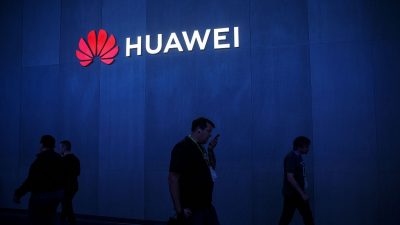The U.S. Ultimatum on Huawei Is Backfiring

The U.S. is putting pressure on its many partners across the world to follow its lead and ban Huawei from their national telecommunications networks, with the Trump Administration channeling the Bush one in the aftermath of the 9/11 terrorist attacks by strongly implying that they are “either with us or against us.”
Unlike back then, however, few countries are going along with the U.S. pressure; probably because they understand the huge difference between joining an anti-terrorist military coalition and an anti-Chinese trading one.
Building off of that observation, Huawei’s services are inexpensive and high-quality, which is the exact opposite of what the competition is providing, whether American or otherwise, and it makes sense for countries to purchase its technology in order to help them modernize their telecommunications infrastructure in preparation for the global 5G revolution.
Be that as it may, the U.S. isn’t the one to give up its campaigns of pressure so easily, which is why it’s threatened to stop sharing intelligence with the countries who partner with Huawei on the false pretext that doing so would be tantamount to giving this information to China as well.
This is a startling ultimatum because it suggests that the U.S. is willing to sit back and allow terrorists to strike its partners as punishment for them refusing to toe the line on trade, which isn’t just extremely unethical, but also counterproductively contradicts the spirit behind the Bush Administration’s immediate post-9/11 ultimatum.
Playing games with people’s lives unless their governments go along with their “partner’s” economic demands is a new tactical low in President Trump’s much-touted international deal-making approach and belies strategic desperation to do whatever is needed in order to get other countries to submit to him.
To their credit, most European countries are resisting the U.S.’ security blackmail and bravely going forward with their Huawei partnership plans in parallel with intensifying their military cooperation through the Permanent Structured Cooperation (PESCO) initiative that Washington has recently complained about once again.
In fact, it can be said that the more that the U.S. puts pressure on its European partners through this unethical deal-making tactic and others, the more likely it is that they’ll push back and respond by strengthening their cooperation with one another.
This isn’t just a blind reaction either, but part of the bloc’s new policy to adapt to new international conditions, which was just recently elaborated upon by German Chancellor Merkel when the de-facto EU leader proclaimed that “the old certainties of the postwar order no longer apply” and that “Europe needs to reposition itself in a changed world.”
The bloc was already moving in this direction prior to the U.S.’ anti-Chinese pressure campaign, but President Trump’s strategy of security blackmail will only accelerate this process. Moreover, it looks likely to widen the existing transatlantic divide on other issues too.
U.S. trade war tactics aren’t just being applied against China, but against the EU as well, and talks on the Obama-era Transatlantic Trade and Investment Partnership (TTIP) have frozen. In response to U.S. economic protectionist policies, EU countries have looked towards China as the new heir of globalization and strengthened their trade ties with it instead, with some influential states such as G7 member Italy recently joining China’s Belt & Road Initiative.
It, therefore, appears as though the U.S. has forgotten that “for every action, there is an equal and opposite reaction,” and that the policy of pressure that it is putting on its partners to separate them from China is obviously backfiring.
*
Note to readers: please click the share buttons below. Forward this article to your email lists. Crosspost on your blog site, internet forums. etc.
This article was originally published on CGTN.
Andrew Korybko is an American Moscow-based political analyst specializing in the relationship between the US strategy in Afro-Eurasia, China’s One Belt One Road global vision of New Silk Road connectivity, and Hybrid Warfare. He is a frequent contributor to Global Research.

